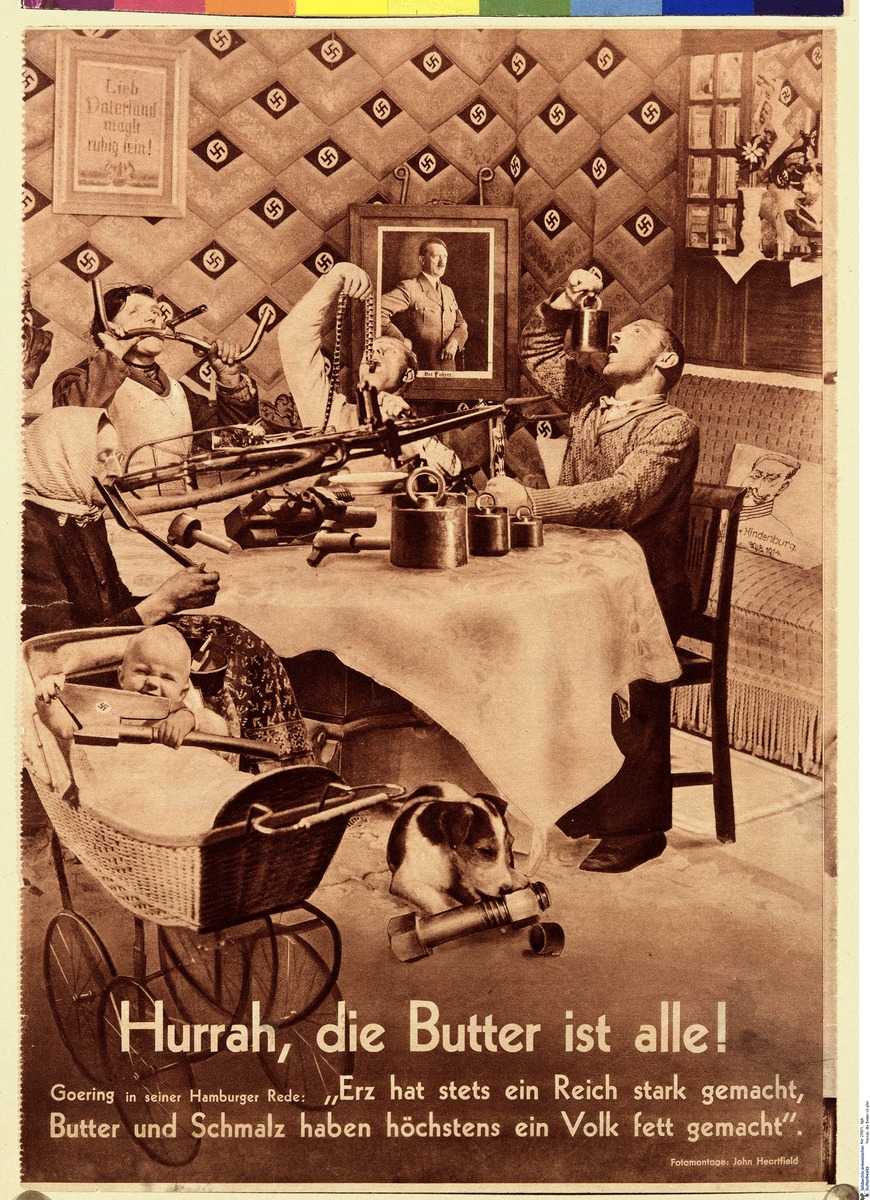Abstract
The leftist weekly Arbeiter
Illustrierte Zeitung (AIZ) was published from 1921 to 1938. At
first, it focused on the construction of the Soviet state in Russia.
Later, it began reporting on subjects pertinent to the German working
class and settled upon the goal of advancing the political education of
workers. Founded by the Communist Willi Münzenberg (1889–1940), the
newspaper published articles, illustrations, and photomontages by
well-known writers and artists such as George Grosz, Maxim Gorki, Käthe
Kollwitz, John Heartfield, Anna Seghers, Erich Kästner, and Kurt
Tucholsky. By the time Hitler was appointed chancellor, the paper’s
circulation had grown to over 500,000. After the Nazi takeover in
1933, Arbeiter Illustrierte Zeitung
had to move its operations from Berlin to Prague, where it continued to
appear until the German invasion in 1938.
This 1935 photomontage by Dada artist John Heartfield is a parody of
a speech by Hermann Göring, a quote from which is included at the bottom
of the image. It reads: “Ore has always made an empire strong, butter
and lard have made a country fat at the most.” Göring, who was in charge
of the Four-Year Plan and thus responsible for the industrial and
military rearmament of the country, repeatedly demanded an increase in
the iron industry’s productive capacity to boost the exploitation of
domestic ores. In 1937, his demands culminated in the founding of the
“Reich Works Hermann Göring,” which sought to compete with the
traditional iron industry of the Ruhr Region. The quote used here, which
stems from a 1935 speech in Hamburg, is an example of the aggressive,
militarist rhetoric Göring employed to convince Germans of the necessity
of making sacrifices for the country’s rearmament—even if this entailed
food shortages. Heartfield’s montage shows a typical German family,
whose patriotism and loyalty to the Nazis is illustrated by several
details: the Hitler portrait; the swastika-patterned wallpaper; the sofa
cushion bearing Hindenburg’s likeness, and the framed verse in the upper
left “Lieb Vaterland magst ruhig sein” [“Dear Fatherland, no danger
thine”], which stems from the 19th-century patriotic song “Die Wacht am
Rhein” [“The Watch on the Rhine”]. In their blind loyalty to the Führer,
this family even seems to have forgotten that iron is no substitute for
food and instead cheers: “Hurrah, we’re out of butter!”
